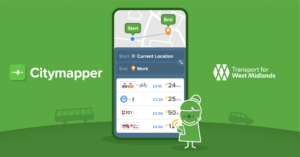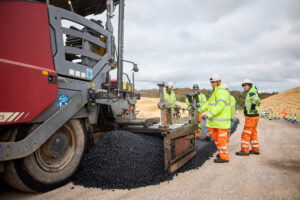Dorset Council is now using low energy asphalt on all resurfacing schemes and as a course on new road construction projects, leading to a 15% reduction in emissions.
The material is produced 30 to 40 degrees lower than conventional material, which is usually produced at 180 degrees. This reduced heat results in 15% less carbon emissions during the production process.
Councillor Ray Bryan, portfolio holder for Highways, Travel and Environment, said: “Following two successful resurfacing schemes trialling LEA here in Dorset, we have been very keen for mass-production of the material at the regional quarry, Whatley. Working closely with our private sector partner Hanson UK this has become a reality.
Dorset Highways currently uses low energy asphalt in the lower and middle layers (base and binder) of road construction, with these containing 30% recycled material too. From July, low energy material will also be used for the top layer.
News comes as the council announced that it will be able to carry out more resurfacing and reconstruction work on its roads this year, thanks to a extra £9.1m injection from the Department for Transport (DfT). The fund will improve journeys for cyclists, pedestrians and drivers across England through repairs to local roads and will seek to lock-in environmental benefits seen during COVID-19.
Councillor Bryan, said: “This is a much welcomed, significant boost to our highways funding. As always, there are caveats as to what we can spend this money on, but we are hoping to accelerate our current programme of roads resurfacing and improvement works. Highways teams are currently assessing sites that would benefit from resurfacing as well as drainage improvement schemes and stability works between Wimborne and Cranborne.
“We welcome government funding for specific areas of the council’s work like this. However, I must remind residents that the council’s overall financial position remains challenging due to the significant additional expenditure and loss of income incurred through our COVID response.”
This additional money raises the total capital funding received from the Department for Transport for Dorset Highways to £23,848,000, and includes:
Confirmed 2020/21 annual allocation £10,564,000
Incentivised element (Band 3 awarded) £2,201,000
Improvements funding £1,971,000
Transport Infrastructure Investment Fund £9,112,000
























